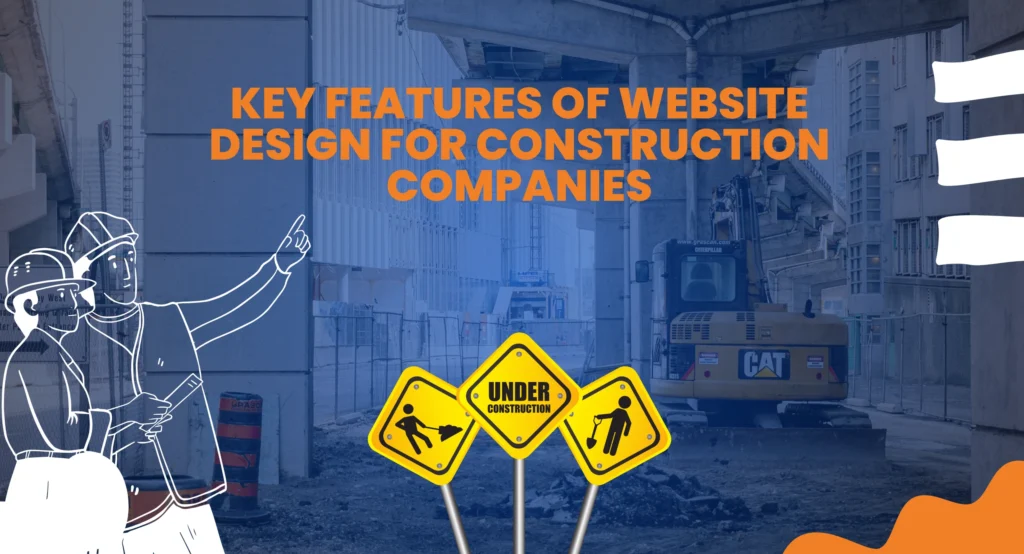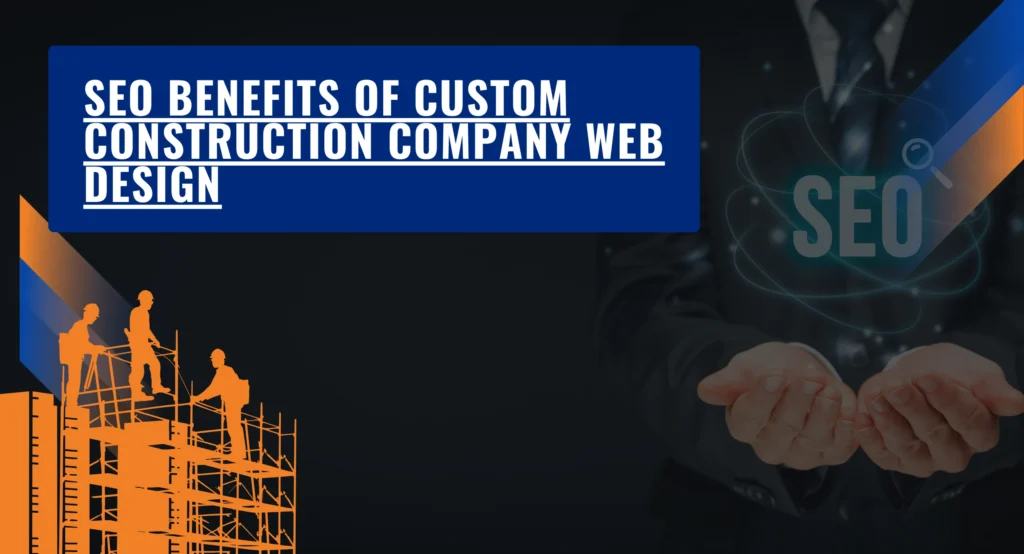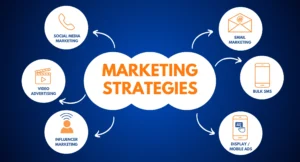Introduction
The Digital Front Door for Construction Companies
In the construction industry, reputation is everything. Clients need to know that the company they choose is reliable, professional, and capable of handling their project with precision and care. While word-of-mouth referrals and long-standing relationships remain important, the digital age has changed how potential clients make decisions. Today, the first place people turn when researching contractors or builders is the internet.
That means your website has become one of your most important business assets. It’s the digital storefront of your construction company — often the very first impression a potential client has of your brand. Within seconds of landing on your homepage, visitors form an opinion about your professionalism, your capabilities, and even whether you’re trustworthy enough to handle a large-scale project.
Why Templates Fail the Construction Industry
For that reason, investing in a construction company website design tailored to your industry is no longer optional — it’s essential. Yet many businesses in the construction sector still rely on generic templates or cookie-cutter designs, thinking they’ll “get the job done.”
While a template might seem cost-effective in the short term, it’s often a costly mistake in the long run. Generic websites fail to communicate the credibility, experience, and authority that construction companies need to win bids and build trust with potential clients.
The Power of Industry-Specific Web Design
This is why industry-specific website design for construction companies makes all the difference. A custom approach ensures your website doesn’t just look good — it works hard for your business by showcasing your expertise, ranking higher on search engines, and making it easy for potential clients to contact you.
What You’ll Learn in This Article
In this article, we’ll explore why construction companies need an industry-specific website instead of a one-size-fits-all template. We’ll cover:
- The shortcomings of generic designs.
- The benefits of specialized construction company web design.
- The key features every contractor website should include.
- Common mistakes to avoid.
- Future trends that will set your construction business apart.
By the end, you’ll see why a tailored digital presence is one of the smartest investments you can make for your construction company.
The Role of a Website in the Construction Industry
The construction business is built on trust, reputation, and proven expertise. Unlike e-commerce stores or casual blogs, a construction company’s website serves a unique purpose: it must establish credibility while acting as a lead-generation machine.
First Impressions Are Critical
Studies show that it takes less than half a second for someone to form an opinion about a website. For construction companies, that impression carries even more weight. Imagine a property developer or homeowner researching contractors in their area. If your website looks outdated, generic, or unprofessional, that visitor may assume your construction work reflects the same lack of attention to detail.
On the other hand, a modern and professionally crafted construction company website design immediately communicates reliability, expertise, and capability. It tells potential clients: “We’re organized, professional, and ready to handle your project.” That’s the kind of reassurance that closes deals before you even pick up the phone.
A Website Is More Than a Digital Business Card
Many contractors make the mistake of treating their websites like static online brochures. But in today’s digital-first marketplace, your site is far more than that. A properly designed website functions as:
- A Sales Tool: Highlighting your services, project portfolio, and differentiators to convince prospects to choose you over competitors.
- A Portfolio: Showcasing completed projects with before-and-after photos, case studies, and client testimonials that demonstrate your capabilities.
- A Trust Builder: Displaying certifications, licenses, safety records, and years of experience to reassure clients that you meet industry standards.
- A Lead Generator: Converting visitors into inquiries with quote request forms, chat features, and mobile-friendly contact options.
With the right website design for construction companies, your site can generate qualified leads around the clock, even while your crews are out on job sites.
The Digital Marketplace Is Competitive
In nearly every region, competition among construction firms is fierce. Potential clients don’t just get one referral — they search online, compare multiple companies, and often shortlist only the ones with the most professional web presence.
If your competitors have invested in tailored construction company website design, and you’re still relying on a generic template, you’re automatically at a disadvantage. Prospects will naturally assume the business with the stronger, more polished site is also the better choice for the job — even if that’s not true.
The Shift in Client Behavior
It’s important to understand how dramatically client behavior has shifted. A decade ago, many construction firms relied heavily on word-of-mouth, cold calls, or print advertising. While those channels still matter, today’s clients almost always conduct online research before making contact.
Here’s what happens in practice:
- A property owner, developer, or homeowner searches Google for “contractor near me” or “roofing company in [city].”
- They click through to websites and compare companies.
- If the site feels credible, easy to navigate, and relevant, they’ll reach out for a quote. If not, they’ll leave within seconds.
That means your website is no longer just a marketing tool — it’s a deciding factor in whether your phone rings with new business opportunities.
Establishing Authority in the Industry
For construction companies, authority is everything. Clients want to know they’re working with a company that understands industry standards, complies with regulations, and has the track record to back it up. A strong construction company website design reinforces that authority by making it clear:
- What services you specialize in.
- Where you’ve worked (local service areas).
- What types of projects you’ve successfully completed.
- Which certifications, partnerships, and affiliations you hold.
Generic templates don’t account for these specialized needs, leaving gaps in your credibility. By contrast, an industry-specific website highlights the very details that clients use to decide whether to trust your company.
Why Generic Templates Don’t Work for Construction Companies
Generic website templates are everywhere. They’re cheap, quick to install, and often marketed as “one-size-fits-all” solutions. But while they may look appealing on the surface, they rarely serve the real needs of construction companies. Let’s break down the key reasons why templates fall short.
Limited Customization Options
Most templates are built to serve a broad range of businesses. A café, a yoga studio, or a law firm could all theoretically use the same design — but a construction company has very different requirements.
- You may need space for large project portfolios with before-and-after visuals.
- You may want to highlight safety certifications, licenses, and compliance records.
- You may want advanced contact forms for quote requests or RFQs (Requests for Quotation).
Generic templates often don’t support these needs. You end up trying to “force-fit” your construction business into a layout that was never designed for it.
Poor User Experience for Clients
When clients visit a contractor’s website, they’re usually searching for very specific information:
- What services you offer.
- Whether you operate in their area.
- Proof of past work and quality.
- Easy ways to get in touch.
Generic templates often hide or limit these critical elements. Navigation is clunky, service information gets buried, and calls-to-action aren’t emphasized. As a result, visitors leave frustrated — and you lose potential leads.
Weak SEO Foundation
Search engine optimization (SEO) is essential for generating leads online. Unfortunately, many templates are built with bloated code, slow loading speeds, and poor mobile responsiveness. These factors directly hurt your rankings on Google.
Even worse, templates rarely come optimized for construction company website design needs. They don’t include schema markup for services, local SEO structures, or keyword-focused layouts that help contractors rank in competitive markets.
Risk of Looking Like Your Competitors
One of the biggest dangers of using templates is blending in. Thousands of businesses may be using the same design. Imagine two competing contractors in the same city using identical templates — prospects won’t see either company as credible or unique.
When your website looks just like everyone else’s, it undermines the very trust you’re trying to build. In a competitive field like construction, standing out is non-negotiable.
Short-Term Savings, Long-Term Losses
While templates may be cheaper upfront, they often cost more over time. You’ll spend money patching functionality gaps, customizing features, and trying to retrofit SEO. And when your website fails to generate leads, the hidden cost is even greater: lost opportunities.
The Case for Industry-Specific Construction Company Website Design
If templates are the problem, then what’s the solution? The answer is simple: industry-specific, custom website design for construction companies. This approach doesn’t just give you a prettier site — it gives you a business tool that drives growth, builds trust, and positions you as an authority in your field.
Tailored to Client Expectations
Every industry has unique client expectations. For construction, prospects want reassurance that they’re hiring a contractor who is skilled, reliable, and trustworthy. A specialized construction company website design is built to:
- Highlight portfolios with high-quality visuals.
- Emphasize certifications, safety records, and insurance coverage.
- Provide clear service breakdowns (residential, commercial, industrial).
- Offer easy ways to contact your team for bids or consultations.
Instead of trying to “fit” into a template, your website is designed around the exact information your clients need.
Built With SEO in Mind
A custom design also means you can bake in SEO best practices from day one. That includes:
- Dedicated service pages optimized for keywords (e.g., “commercial roofing contractor in Dallas”).
- Local SEO integration (Google Maps, city-specific landing pages).
- Fast-loading pages for mobile devices (critical for on-the-go clients and jobsite managers).
- Proper metadata, alt tags, and schema markup for construction services.
This foundation makes it far easier for your site to rank well in Google — and for potential clients to find you.
Scalable for Growth
Construction businesses evolve. You may add new services, expand to new locations, or complete flagship projects you want to showcase. With a tailored design, scaling is seamless:
- Add new service pages as you grow.
- Showcase new projects in dynamic portfolio sections.
- Expand local SEO with new city-specific landing pages.
Templates, by contrast, often break or become outdated when you try to grow.
Designed to Convert Leads
At the end of the day, your website should be more than attractive — it should generate business. A construction-specific design uses proven conversion strategies:
- Prominent calls-to-action (“Request a Quote,” “Schedule a Consultation”).
- Easy-to-use contact forms.
- Live chat or chatbot options.
- Lead magnets like cost calculators or downloadable checklists.
When designed strategically, your website becomes a 24/7 sales engine for your construction company.
Long-Term ROI
Investing in a specialized construction company website design may cost more upfront than a template, but it pays for itself many times over. The long-term benefits include:
- Higher search engine rankings.
- More qualified leads.
- Stronger credibility and trust.
- A website that grows with your business.
When you view your website as a business asset rather than an expense, the return on investment becomes clear.
Key Features of Website Design for Construction Companies
Not all websites are created equal. A law firm’s site has different priorities than a construction firm’s. For construction companies, the website must strike the perfect balance between professionalism, trust, and functionality. Below are the key features that separate an average site from a truly effective construction company website design.
Professional Branding and Messaging
Your website should immediately communicate who you are and what you stand for. A clean, modern design with your company’s colors, logo, and brand voice builds recognition and trust. Messaging should be straightforward — no jargon, no fluff — just clear explanations of your services, values, and expertise.
Example: Instead of saying, “We leverage innovative processes to deliver optimal project outcomes,” say, “We build safe, reliable, and cost-efficient projects on time and on budget.”
Detailed Project Portfolio and Case Studies
One of the biggest decision-making factors for clients is seeing your past work. High-quality visuals of completed projects, before-and-after comparisons, and written case studies show real proof of your capabilities.
Case studies should include:
- Project scope and objectives.
- Challenges faced and how they were solved.
- Measurable outcomes (cost savings, timeline efficiency, client satisfaction).
This builds trust and demonstrates expertise far better than generic stock photos.

Optimized Service Pages
Each service deserves its own dedicated page, fully optimized for search engines and designed to convert. For example:
- “Residential Remodeling Services in [City]”
- “Commercial Roofing Contractors in [City]”
- “Concrete and Foundation Specialists”
These service pages should include:
- A clear description of the service.
- Benefits of choosing your company.
- FAQs addressing client concerns.
- A call-to-action at the end of the page.
Trust-Building Elements
Construction is a high-investment, high-risk decision for clients. They want to be 100% sure they can trust you. Trust signals you should include are:
- Licenses and certifications (OSHA, LEED, local certifications).
- Safety compliance records.
- Insurance details.
- Awards and industry affiliations.
- Client testimonials and reviews.
Displaying these prominently reassures clients that your company is credible and compliant.
Local SEO Integration
Most construction businesses serve specific regions. That’s why website design for construction companies must include local SEO features like:
- City or region-specific landing pages.
- Google Maps integration.
- Consistent NAP (Name, Address, Phone) information across the site.
- Local keywords (e.g., “general contractor in Austin, TX”).
This ensures your business shows up in searches when potential clients are looking for nearby contractors.
Conversion-Focused Contact Options
Your website must make it easy for clients to take the next step. That means:
- Prominent “Request a Quote” or “Get an Estimate” buttons.
- Short, simple contact forms (don’t ask for too much upfront).
- Click-to-call phone numbers.
- Live chat or chatbot integration for instant inquiries.
When prospects have a seamless path to contact you, conversion rates skyrocket.
Mobile Optimization
Many clients search from their phones — whether they’re property owners, developers, or even jobsite managers. A mobile-friendly, responsive design ensures your website looks and works great on all devices.
Google also prioritizes mobile-optimized sites in search results, so this feature helps both usability and SEO.
Fast Load Speed and Performance
Construction companies can’t afford to frustrate prospects with slow-loading pages. Every second counts — statistics show that if a website takes more than 3 seconds to load, most users will leave. A properly developed construction company website design is lightweight, optimized, and fast.
6. SEO Benefits of Custom Construction Company Web Design
A great-looking website is only half the battle. If no one can find it, it’s not working for your business. That’s where SEO (Search Engine Optimization) comes in. A custom construction company website design provides a strong SEO foundation that templates simply can’t match.
Better Visibility in Local Searches
The majority of construction clients search locally — “contractor near me,” “roofing company in [city],” or “home remodeler [city].” With custom design, your site can be optimized for these exact terms. That includes:
- Location-specific service pages.
- Schema markup for local business.
- Integration with Google Maps and Google Business Profile.
Result: more visibility when local prospects are actively searching.
Higher Quality Leads
Generic templates might bring random traffic, but optimized website design for construction companies attracts the right visitors:
- Property owners looking for remodeling.
- Developers needing commercial contractors.
- Homeowners searching for roofing, plumbing, or electrical work.
When your site speaks directly to these needs, leads are more qualified and more likely to convert.

Long-Term ROI Compared to Ads
Pay-per-click advertising can bring short-term results, but the costs add up quickly. SEO, on the other hand, delivers compounding returns. Once your custom website ranks for important keywords like “construction company website design” or “roofing contractor in [city],” it can generate consistent traffic and leads without ongoing ad spend.
Improved Technical SEO
A properly designed website also addresses the technical side of SEO, which many templates neglect. This includes:
- Fast loading speed.
- Clean, crawlable code.
- Secure HTTPS hosting.
- Mobile-first indexing.
- Optimized images and alt tags.
These factors help your site perform better in search engine rankings.
Examples of Target Keywords
Here are some real-world keyword targets that an industry-specific website should aim for:
- “Commercial construction company in [city]”
- “Residential remodeling contractor near me”
- “Custom home builders in [city]”
- “General contractor website design”
By aligning your content with these search terms, you’ll not only attract more traffic but also capture clients with strong intent to hire.
Case Study: From Template to Custom Construction Company Website Design
Sometimes the best way to understand the difference between a generic template and a tailored site is through real-world examples. Let’s walk through a hypothetical case study that mirrors what many construction companies experience when upgrading their websites.
The Starting Point: A Generic Template
“BlueRock Contracting,” a mid-sized general contracting firm, had relied on a low-cost, template-based website for years. The site:
- Looked dated, with stock photos that didn’t represent their actual work.
- Buried key information like licensing and certifications deep in subpages.
- Had no dedicated service pages, making it difficult for clients to see exactly what BlueRock offered.
- Loaded slowly on mobile devices.
As a result, while BlueRock had strong referrals offline, they weren’t generating many leads through their website. Prospects who landed on their site often bounced within seconds.
The Redesign: Industry-Specific Web Design for Construction Companies
BlueRock invested in a professional construction company website design that focused on their industry. The redesign included:
- A homepage featuring high-quality photos of their own completed projects.
- Dedicated service pages for commercial builds, residential remodels, and specialty contracting.
- An interactive portfolio section with project descriptions and outcomes.
- Prominent trust signals — safety certifications, insurance coverage, and client testimonials.
- Local SEO integration for the three cities where they operated.
- Mobile-friendly, fast-loading pages with clear calls-to-action like “Request a Quote.”
The Results After 6 Months
The impact was immediate and measurable:
- 120% increase in organic search traffic due to SEO-focused service pages.
- 3x more leads generated through quote forms and calls.
- A 30% reduction in bounce rate because visitors found relevant information quickly.
- Higher-quality clients, including a commercial property developer, reached out directly via the new contact forms.
Key Takeaway
This case study shows how moving from a cookie-cutter design to a tailored website design for construction companies can transform a business. A construction firm’s website is more than an online brochure — it’s a growth engine when built with industry needs in mind.
Common Website Mistakes Construction Companies Make
Even with the best intentions, many construction businesses make avoidable mistakes when it comes to their websites. These errors not only hurt credibility but also drive potential clients away. Here are the most common pitfalls.
Using Stock Photos Instead of Real Projects
Nothing undermines credibility faster than generic images. Clients want to see your actual work — not the same stock photo they saw on another contractor’s site. Authentic project photos, even if taken with a professional smartphone camera, will build more trust than polished stock photography.
Overloading With Jargon
Construction professionals may be comfortable with technical terms, but clients often aren’t. Phrases like “structural load-bearing capacity assessments” can confuse homeowners or property managers. Instead, use plain language: “We ensure your structure is safe and built to last.”
Clear communication makes your services accessible to everyone, not just industry insiders.
Ignoring Mobile Users
A significant percentage of searches for contractors come from mobile devices. If your site isn’t responsive, loads slowly, or forces users to pinch and zoom, you’re losing leads. Google also penalizes non-mobile-friendly sites in rankings, making this mistake a double loss.
No Analytics or Tracking
Many construction companies launch websites but never track performance. Without tools like Google Analytics or call tracking, you can’t measure what’s working or where clients are dropping off. This makes it impossible to optimize your website for better results.
Outdated Content and Design
An outdated website suggests an outdated business. If your site hasn’t been updated in years, prospects may assume your practices or technology are equally behind the times. Regularly adding new projects, blog posts, or industry updates shows that your company is active and forward-thinking.
Weak Calls-to-Action
Many contractor websites fail to guide visitors toward the next step. “Contact Us” buried at the bottom of a page won’t cut it. Strong CTAs like “Get a Free Estimate Today” or “Schedule a Consultation Now” need to be visible across the site.
Neglecting Local SEO
Finally, many construction businesses forget to optimize for local searches. Without city-specific landing pages, Google Maps integration, or consistent NAP information, your site won’t appear when nearby clients search for contractors.
Key Takeaway
Avoiding these mistakes ensures your website not only looks professional but also works as a powerful lead-generation tool. Small errors add up — but so do small improvements. Addressing these issues can immediately improve conversions.
Future Trends in Website Design for Construction Companies
The digital landscape evolves quickly, and websites that stand still risk becoming outdated within just a few years. For construction companies, staying ahead of trends isn’t just about design — it’s about showcasing innovation, authority, and relevance to potential clients. Here are some emerging website design trends that will shape the future of the industry.
Virtual Project Tours and 360° Photography
Clients want to see your work in action. With tools like 360° photography and virtual tours, construction company website design can now provide immersive experiences. Instead of static photos, prospects can “walk through” a completed project from their laptop or phone, building deeper trust in your capabilities.
AI-Powered Chatbots for Instant Responses
Many construction clients have quick questions: “Do you work in my area?” “Can I get an estimate?” “Are you licensed for commercial projects?” AI-powered chatbots can handle these inquiries instantly, 24/7, ensuring you don’t lose leads outside business hours.
Sustainability and Green Building Sections
Sustainability is becoming a major concern in construction. A growing number of clients want eco-friendly building practices and materials. Forward-thinking website design for construction companies includes dedicated sections that highlight sustainable methods, green certifications, and energy-efficient projects.
Integration With Project Management Tools
Some larger construction firms are beginning to integrate client portals directly into their websites. This allows clients to log in, track project progress, view timelines, and even share documents. While not every contractor needs this now, it’s a powerful way to differentiate and provide added value.
Personalized Content and Smart Lead Nurturing
Future-ready websites won’t just show static content. They’ll use personalization to display content based on user behavior. For example:
- A commercial developer sees case studies relevant to large-scale builds.
- A homeowner sees remodeling projects and testimonials.
This type of dynamic content creates a more relevant user experience, improving conversions.
Mobile-First and Voice Search Optimization
As mobile searches dominate and smart speakers rise in popularity, optimizing for voice search will be critical. Phrases like “best construction company near me” or “roofing contractor open now” will continue to grow in importance. Mobile-first and voice-friendly design ensures your site captures these opportunities.
10. Conclusion
The construction industry thrives on trust, reputation, and proven results. In today’s digital-first world, your website has become one of the most important tools for building that trust and winning new clients.
Generic templates might save money in the short term, but they come with hidden costs: poor SEO, limited customization, weak user experience, and a lack of credibility. For construction companies, those shortcomings can mean losing bids, missing opportunities, and falling behind competitors.
On the other hand, a tailored construction company website design delivers long-term value. With industry-specific features like project portfolios, certifications, optimized service pages, and local SEO integration, your website becomes a lead-generating machine that works for your business 24/7.
Future trends — from virtual project tours to AI chatbots and sustainability showcases — will only make specialized web design more important. By investing now, you position your company as forward-thinking, reliable, and client-focused.
Your construction projects are custom-built to meet your clients’ needs. Shouldn’t your website be built the same way?
If you’re ready to move beyond generic templates and invest in a website that truly represents your business, partner with a web design agency that specializes in website design for construction companies. It’s not just a website — it’s your most powerful sales tool.
Ready to win more projects?
Let Rynox Digital craft a custom website for your construction business today.






